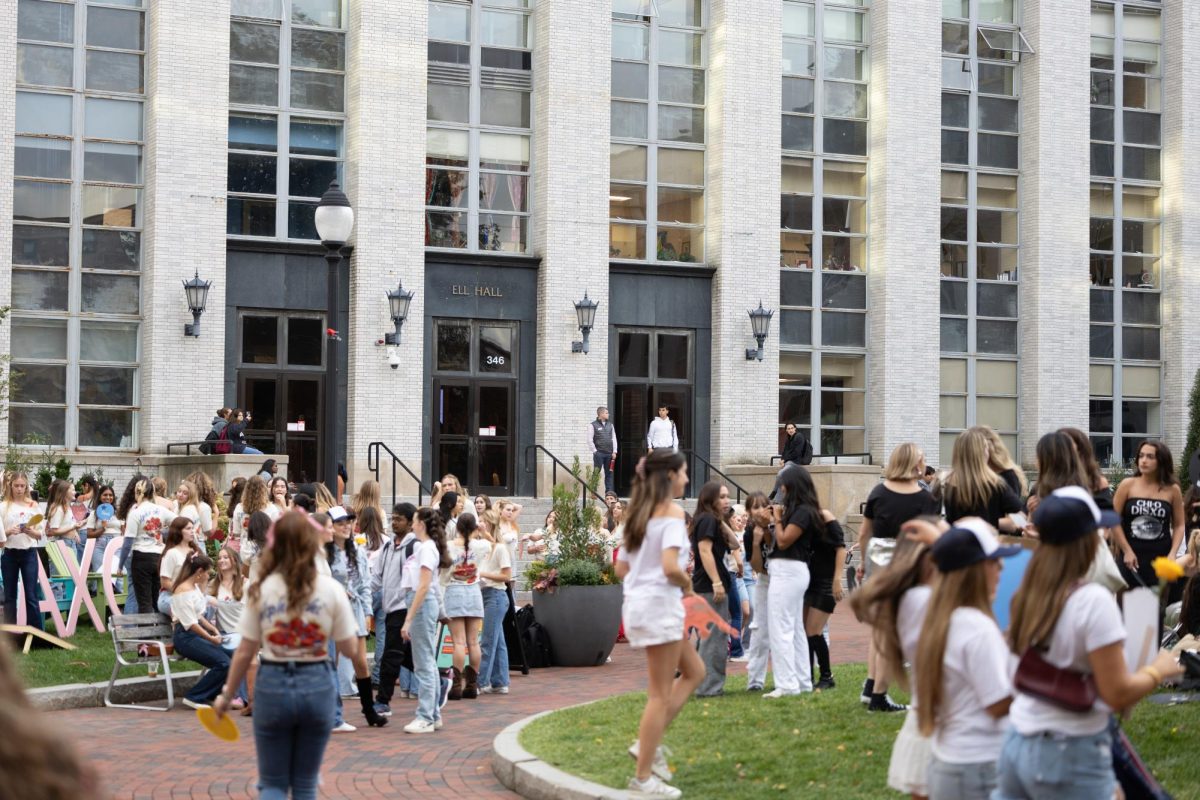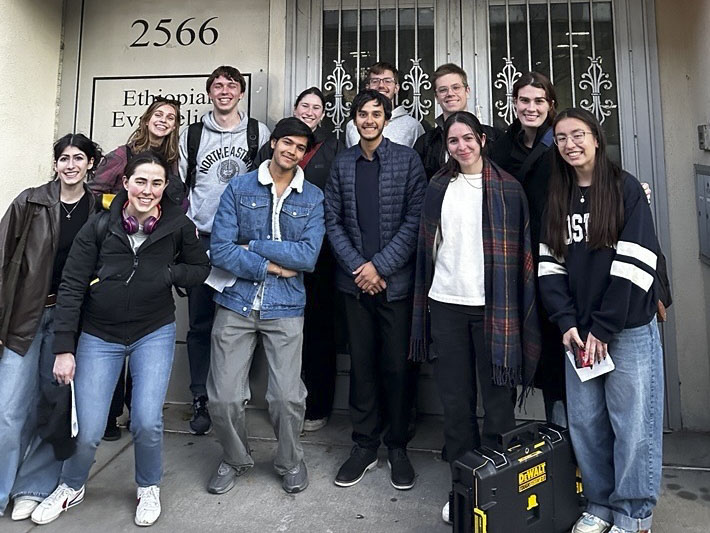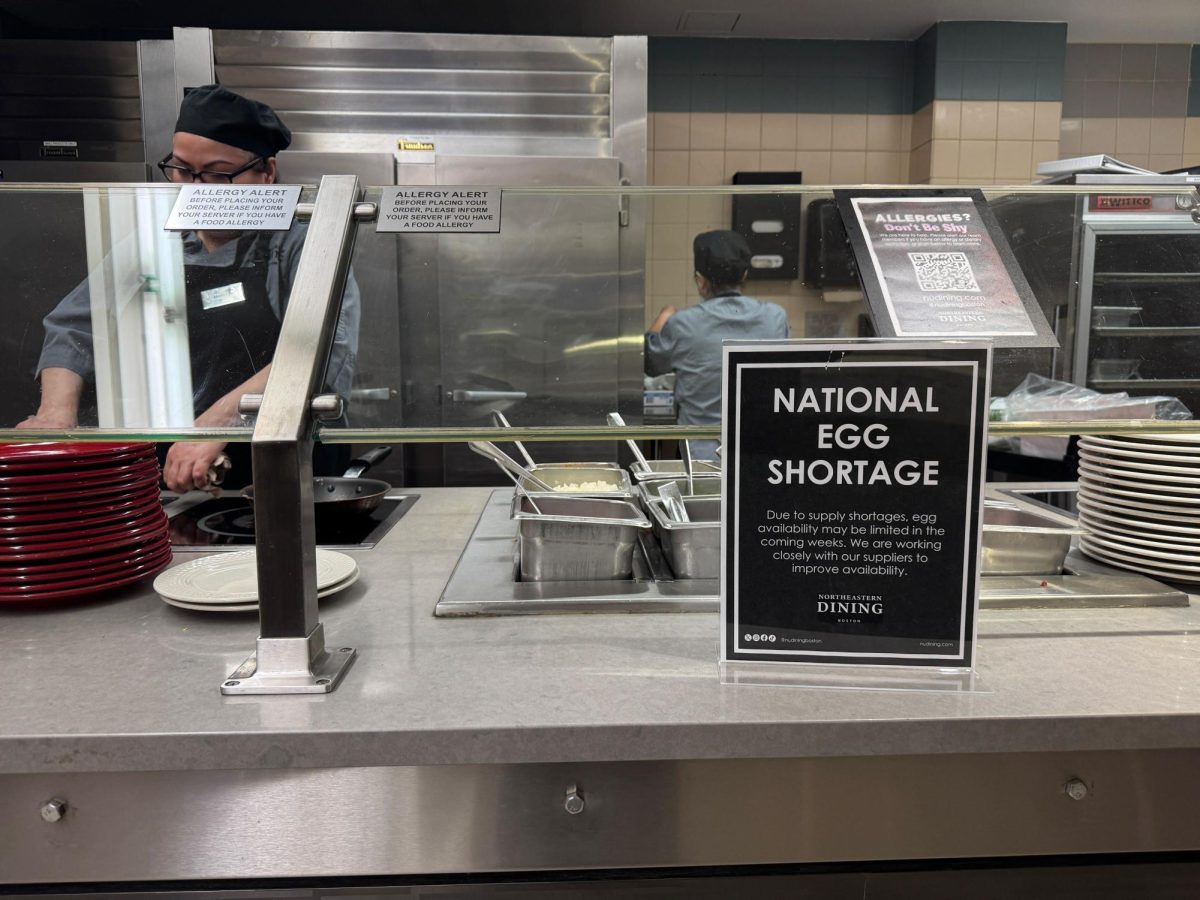Members of the Boston hip-hop community and the Office of Leadership Education Growth Opportunities (LEGO) came together Saturday in the Curry Student Center Ballroom to discuss hip-hop culture and the music business at the first Northeastern Hip-Hop Culture Conference.
The event is one of six conferences LEGO conducts each year on topics affecting the Northeastern community, said Director of Student Leadership John Silveria. Past events have addressed such issues as community involvement and student leadership. This is the first such conference to examine a cultural issue.
“[Hip-hop] is a growing area of study besides being an art, music and business. I think people are fascinated by it, especially people who may not have a connection to it. This is a good way to introduce hip-hop to everyone,” Silveria said.
The conference included several panel discussions as well as individual presentations. One topic discussed at length was the state of the Boston hip-hop scene.
“The problem with Boston is hate. Boston does not support local artists the way other cities do,” said Hot 97.7 FM Music Director Chubby Chub during one of the panel discussions.
Mixtape Magazine Editor-in-Chief Kay Konnect echoed this concern.
“There is plenty of talent in Boston, but without the support it can’t get out there,” Konnect said.
The panel members discussed the many factors such as lack of transportation and venues that could contribute to this phenomenon, as well as the origins of hip-hop that laid the groundwork for these up-and-coming artists.
“Hip-hop was born out of struggle. Back in the ’80s when you got into it, you didn’t think you were part of hip-hop, you just knew you were different,” Konnect said.
Konnect also commented on the current state of hip-hop.
Hip-hop has become very popular, but that does not mean it is accurately portrayed. Mass media like MTV has latched onto one type of the music that is marketable, but much of it is still being ignored, Konnect said.
The event drew a diverse crowd of students and faculty members. With his gray hair and wire-framed glasses, Northeastern English Professor Samuel Bernstein did not look like your average hip-hop enthusiast, yet his words proved otherwise.
“It is a fascinating cultural phenomenon. Not only does it reflect African and Latino culture, but it answers the profound need among young people trying to establish an identity. This is a matter that deserves exploration from a musical perspective, sociological perspective and maybe politically and economically as well. It shows that the African American has not been satisfactorily represented in mainstream culture,” Bernstein said.
Many others, including local hip-hop artists Denis Wright and 6th Sense, expressed their frustration about the already difficult financial situation too many young artists face today.
The presentations were well-received by students due to the perspective they brought to fledgling artists, said freshman business major Jay Night.
“They did a good job of reinforcing the reality of the music industry. It’s not an easy road to tackle, but if that’s what you want, there’s no way around it,” Night said.
While the event drew many students, sophomore music industry major Taryanne Cana said it wasn’t enough.
“I think a lot of people [at NU] are still ignorant about hip-hop. The students here are very closed-minded,” she said. “Programs like this help, but they need to get the word out more.”
The panel offered advice for anyone interested in getting involved with the hip-hop industry. The importance of hard work and networking was emphasized.
“Not everyone can be a rapper or DJ, but there are so many opportunities in hip-hop. It has to be an everyday thing though, you cannot do things just when you feel like it and expect something to come out of it,” said Rusti Pendleton, president and owner of Funky Fresh Records.
Chub localized the event to Northeastern by suggesting students look into internships and co-op opportunities in the business.
“Don’t be afraid to do an internship, if your heart is in it everything will work out,” Chub said. “Hip-hop is for everyone and it will be here forever.”










